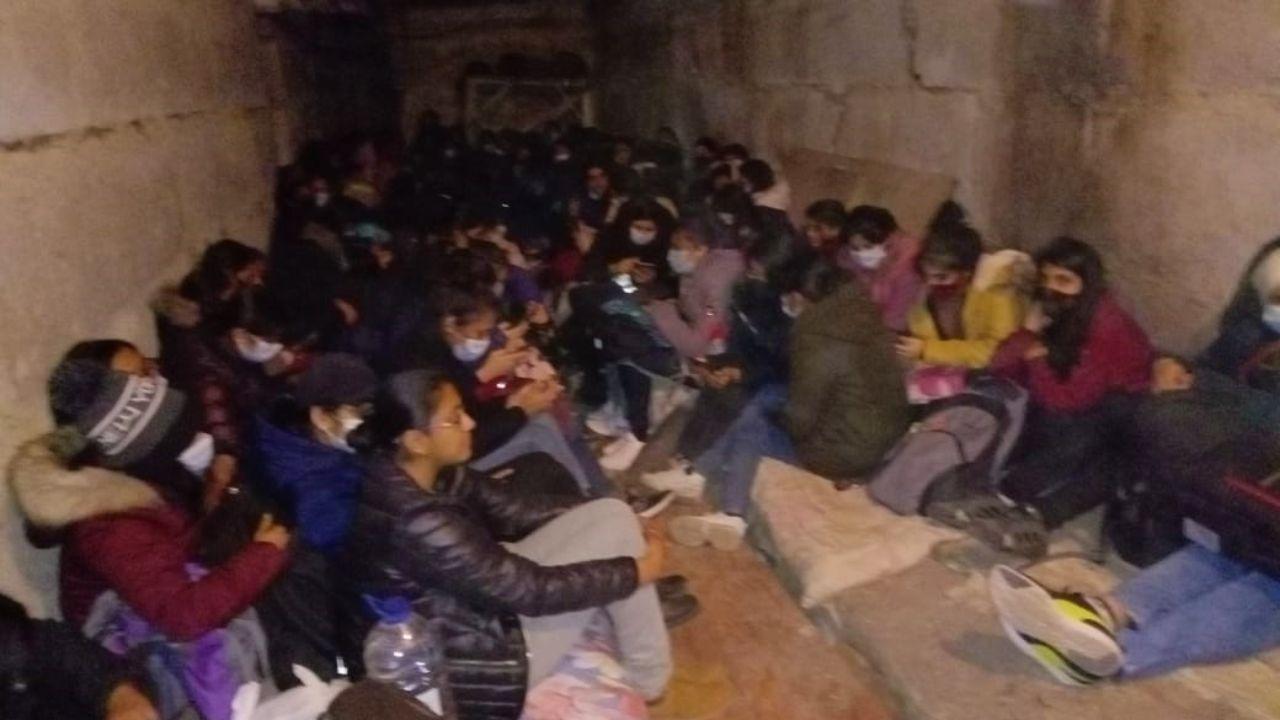Home / News / India News / Article /
'I woke up to the sound of bombing': Indian student stranded in Eastern Ukraine
Updated On: 04 March, 2022 02:46 PM IST | Mumbai | Maitrai Agarwal
Russia's invasion of Ukraine has left people grappling with the violence that has disrupted peace in Europe. Thousands of Indian students find themselves stranded in a war-torn nation. Kriti Mishra, a medical student currently in Sumy, shares her ordeal and the frightening on-ground reality

Indian students stranded in a bunker in war-torn Ukraine's Sumy region. Photo: Kriti Mishra
As the world watches Russia’s invasion of Ukraine, foreign nationals stuck in the war torn country are scrambling for safe passages, and waiting to return to India. A shortage of cash and essential supplies, including food and medicines, has been widely reported as Ukraine imposes curfews amid Russian bombardment. Here in India, thousands of families restlessly await the return of their children. Mid-day spoke to Kriti Mishra, a medical student stuck in Eastern Ukraine, and her sister who’s trying to seek help from authorities in India.
24-year old Kriti Mishra is a 6th year medical student at the Sumy State University. Along with 800 Indian students, Mishra is currently stranded in Sumy, a city located 40 kilometers from the Russian border in Eastern Ukraine, which is facing the brunt of the Russian offence. In addition to air strikes and bombardment, street fights have broken out in the city as locals try to defend themselves from the Russian army. Sounds of gunshots can be heard incessantly, as guerilla warfare-type situations have arisen across the city. “I spent last night at a bunker—which is muddy and doesn’t have any sanitation facilities—which many of us have been using for days now. Early in the morning, I came back to my apartment to finally catch some sleep but within two hours I woke up to the sound of bombing,” shares Mishra.



